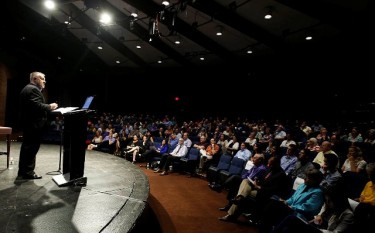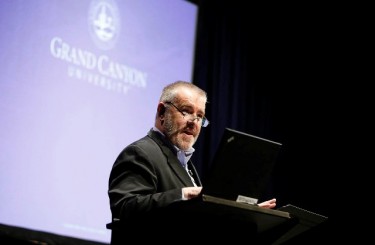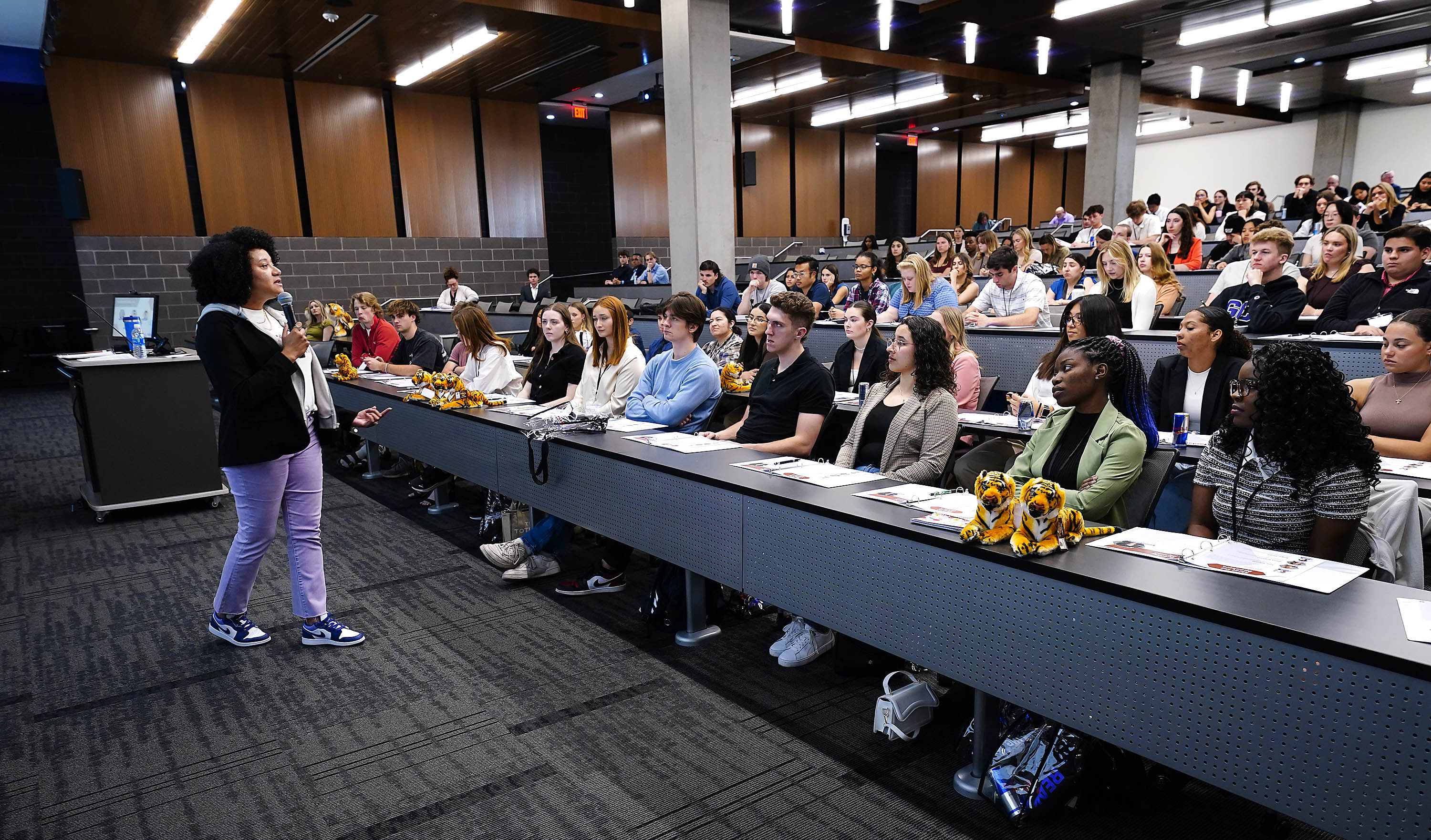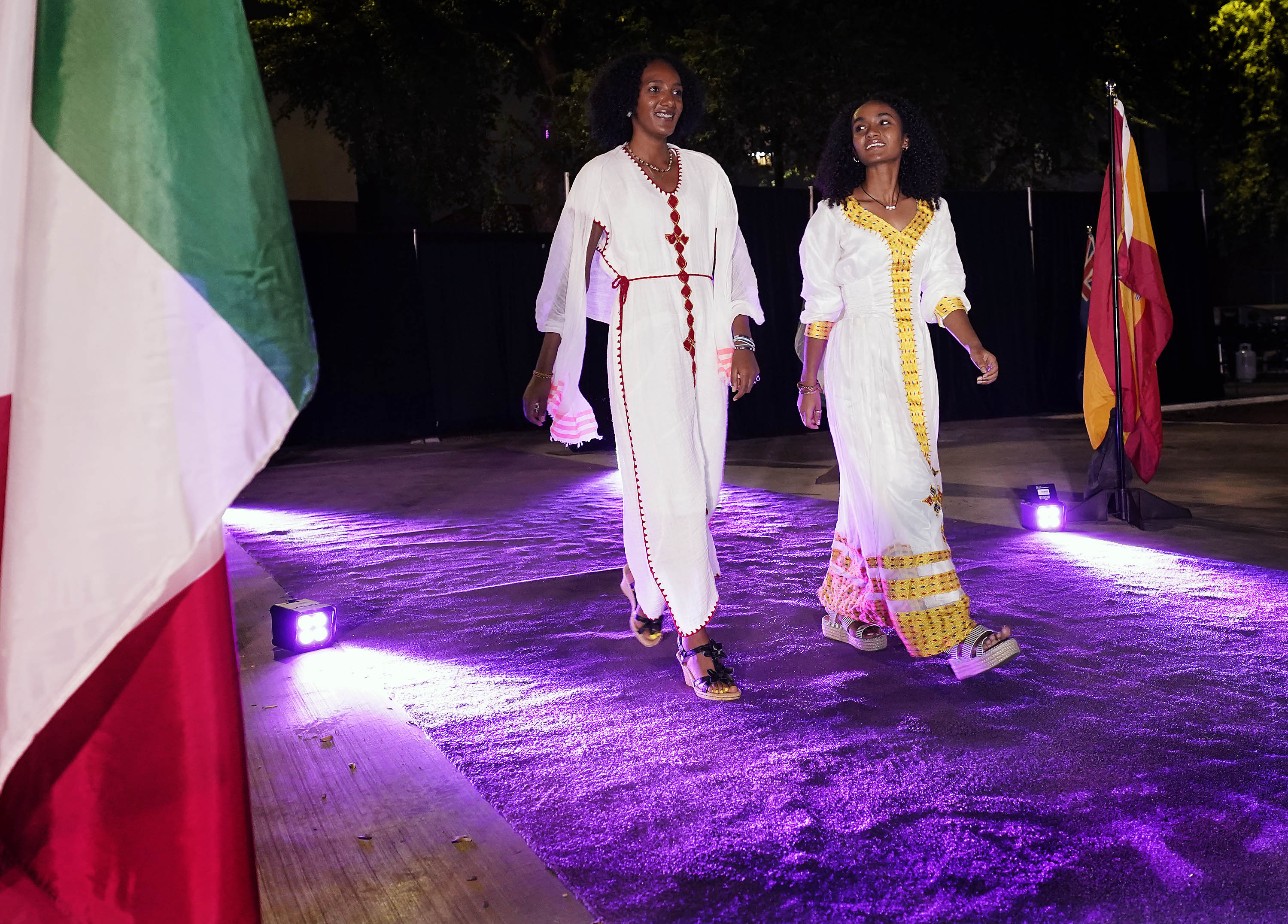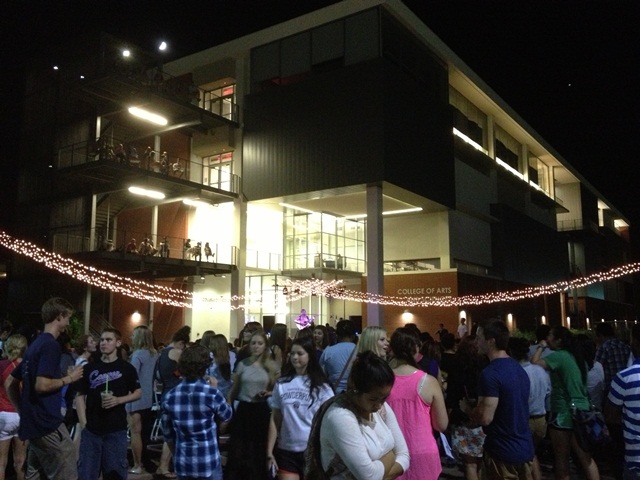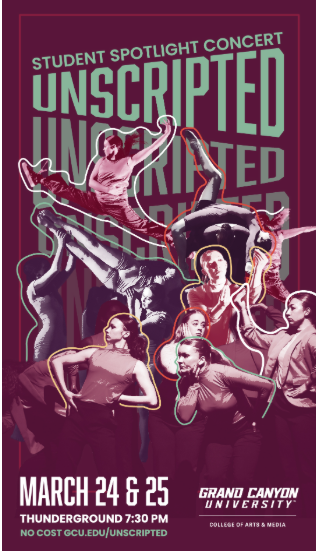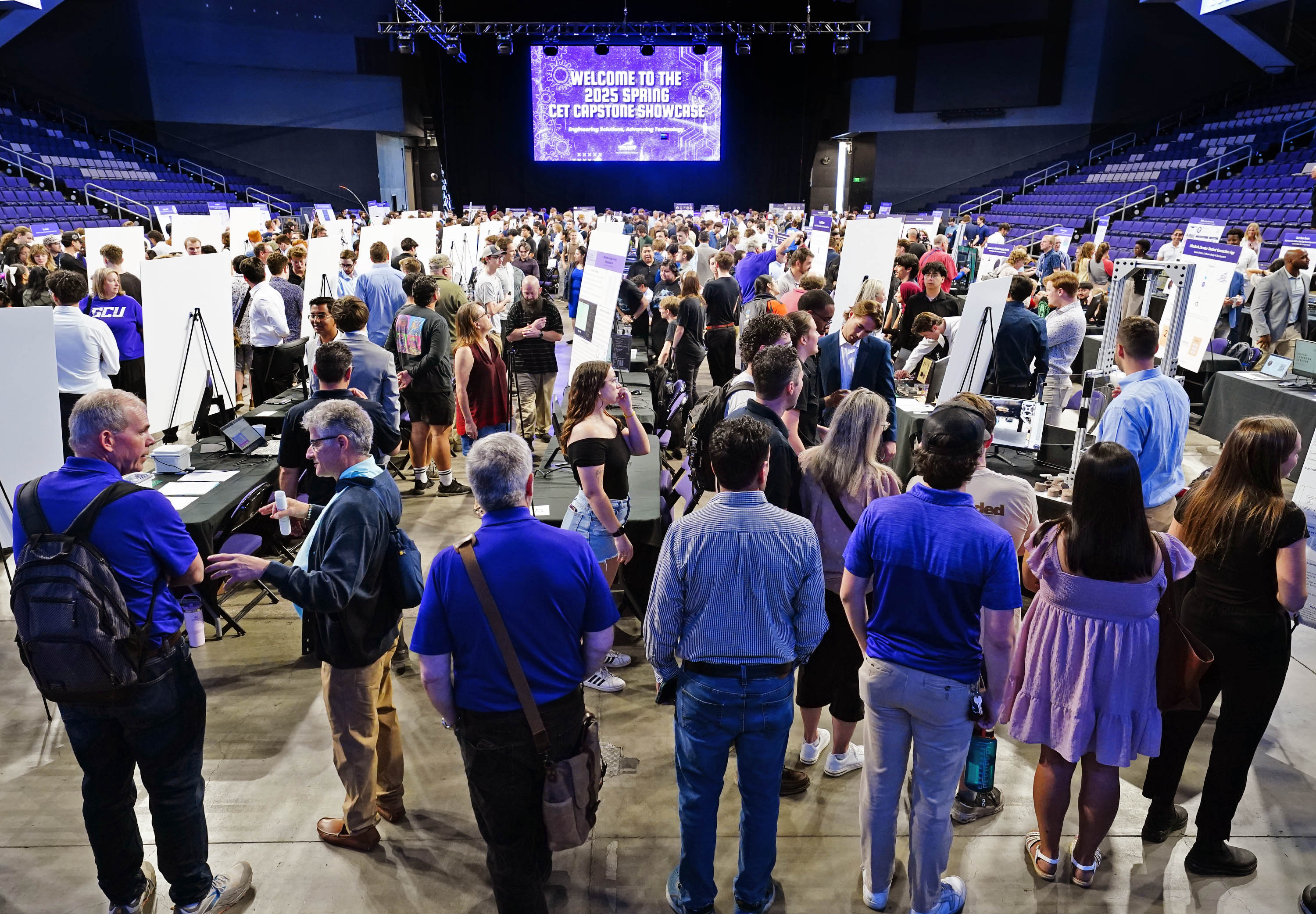Story by Doug Carroll
Photos by Darryl Webb
GCU News Bureau
“Helping the thinker believe. Helping the believer think.”
Those eight words neatly summarize the work of Ravi Zacharias International Ministries to articulate the reasons for the hope that believers have in Christ amid a fractured, messy world. Zacharias and the evangelical organization he founded 30 years ago have taken their defense of the Christian faith to colleges and universities across the globe, including Harvard, Dartmouth, Johns Hopkins and Oxford.
Grand Canyon University hosted Zacharias in the Arena nearly three years ago, and on Wednesday two representatives of RZIM spoke to an Ethington Theatre audience of faculty and staff about the integration of faith and learning — an initiative that enters a second year of intense focus at GCU in 2014-15.
The eight-word RZIM theme seems tailor-made for American college campuses, where the Christian faith has taken a pounding from a postmodern culture that elevates cynicism and distrust and celebrates tolerance devoid of truth.
“It’s a pivotal time for this idea, the integration of faith and learning, and being able to uphold a hope that endures,” said American-born Michelle Tepper, who had her beliefs tested as a student at Oxford but went on to become a chaplain at the university before joining Zacharias’ organization in 2011.
“The university experience is a make-or-break time (for students), with its freedom and questions. I’m concerned that we’re not replenishing a generation of believing adults.”
Tepper and her Scottish-born colleague Dr. Stuart McAllister, who has been with Zacharias since 1998, spoke at length on the subject of hope. They are in Phoenix this week for a meeting of the 40-member RZIM international team, with some attendees coming from as far as Egypt, India, Austria and Spain. They also spoke on Tuesday night at Grace Community Church in Tempe.
They were joined onstage at GCU by Dr. Jacqueline Chadwick, a physician who serves as vice dean of the University of Arizona College of Medicine and specializes in bioethics. Chadwick was invited by Dr. Michael Mobley of GCU.
The three speakers took questions from the audience toward the end of the two-hour program, a feature common to functions involving RZIM. The purpose is to help encourage and equip believers while providing an opportunity for nonbelievers to sort things out.
“The goal is for us to clear away the clutter, so they can see the cross and Christ,” McAllister said in a brief interview before Wednesday’s program, calling the Q&A segment “central” to the organization’s mission. “They may still reject, but it opens up the possibility of acceptance.
"In communication, love involves listening.”
McAllister, whose background includes imprisonment in Eastern Bloc countries for preaching the Gospel, said there should be room for the Bible on any college campus alongside the philosophies of Karl Marx, Friedrich Nietzsche and Sigmund Freud. In fact, he said, all should be part of a robust discussion that is absent of belligerence and hostility.
“The others explain a broken world in secular ways,” he said.
He told the audience that “hope is faith with an eye to the future” and said a Christian worldview must be clear on three points:
- The world that is isn’t the world that was.
- The world that is isn’t the world that must be.
- The world that is isn’t the world that will be.
Such a worldview even impacts matters of the heart, Tepper tells college students when the Zacharias organization visits campuses.
“Your view on God, or lack thereof, will directly affect your love life and relationships,” she said. “That shocks people, or at least it gets them thinking.”
Chadwick said a public university can be a challenging place for a believer, calling it a “hostile, toxic environment” requiring an approach that is indirect yet consistent.
“We have to be very focused and organized, and more strategic than in the past,” she said, acknowledging that she has run up against roadblocks over the years because of her faith. She praised GCU for its desire to be on the cutting edge of such an important dialogue.
If Christians aren’t willing to be the salt and light of whom Jesus speaks in Matthew 5:13-16, then there is no hope for hope in the culture, according to McAllister.
“Our past is covered, our present is answered and our future is guaranteed,” he said of the Gospel message. “That gives us the essence of hope.”
For more about Ravi Zacharias International Ministries and its work, go to www.rzim.org.
Contact Doug Carroll at 602.639.8011 or [email protected].

